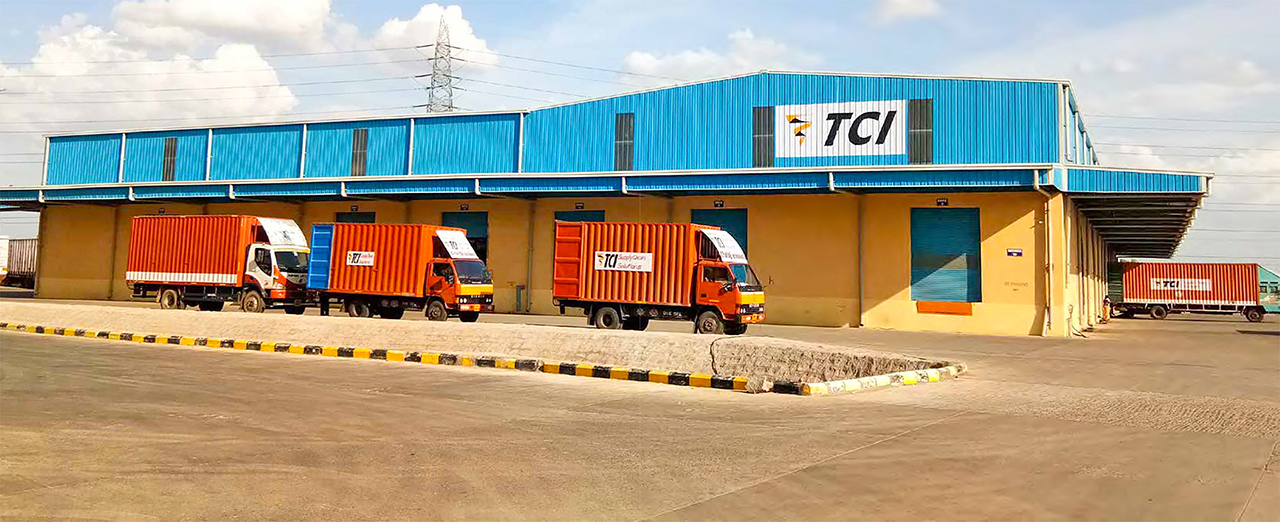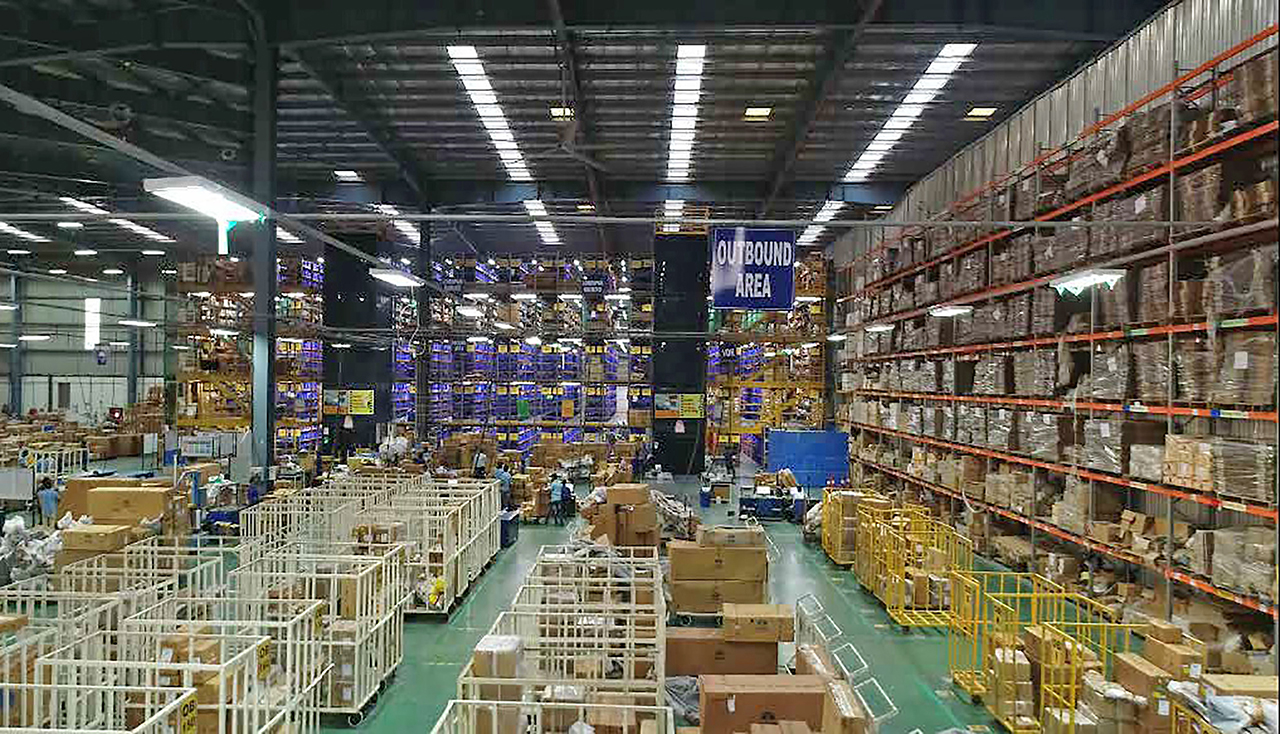Transport Corporation of India Limited (TCI) is India’s leading provider of integrated multimodal logistics and supply chain solutions with over 60 years of experience and expertise. From one man, the pioneer of the freight transport industry, it is now a team of 4,000+ people, the company now has 9,000+ trucks in operation and 900+ offices. Today TCI is serving more and more industries moving seamlessly across India and the neighboring countries. The work done over the years has led TCI to be a distinguished logistics player with a significant regional presence.

TCI provides a range of end-to-end logistics and supply chain solutions in India and the SAARC region through multiple modes, including road, rail, and sea. Its vast expertise, robust network, infrastructure, and talented team underpin its operations. Moving ahead, TCI is determined to focus on delivering customized and technology-enabled logistics solutions that offer scalability and flexibility, thus meeting customer requirements.
The company creates value for its customers through its extensive range of customized end-to-end solutions. Serving almost every industry from pharma, FMCG to E-Commerce, the company is uniquely positioned to focus on high growth segments maximizing value for its customers, helping them unlock their business potential. In auto and auto ancillary industry, TCI offers innovative solutions for complex logistics requirements covering the entire supply chain from production to after markets.
FY 2020-21 performance
During the last financial year, TCI managed to maintain the momentum of profitability. There was increased demand from e-commerce, automotive, certain capital goods, and other sectors from the H2 of FY 2020-21. The Net Profit After Tax (PAT) was recorded at ₹ 15,042 lakhs during the year, a growth of 5.05% YoY. The company generated an EBITDA of ₹ 30,682 lakhs, which was 7.35% higher than the previous year. Operating EBITDA margin for the year stood at 10.85%, against 10.44% in FY 2019-20, while PAT margin grew to 5.32% and 5.23%.
The Q4 of FY 2020-21 was a record quarter for the company. All of TCI’s divisions, i.e., Supply Chain, Seaways and Freight Business, grew by 40%, 23%, and 20%, respectively.
At the same time, TCI’s joint venture company engaged in rail transport, TCI-CONCOR, grew by around 70%. TCI’s multimodal strategy, including integrated logistics and multimodal, has helped immensely. All the segments of TCI have performed well due to a continuous focus on building strong customer relationships, a superior multimodal network, and diversified portfolio of value-added services from design to execution.
As the country experienced the second wave of the pandemic on a never-seen-before scale, TCI stepped in to deliver mission-critical logistics. Since March 2021, TCI has handled over 10,000 tonnes of liquid medical oxygen (LMO) from source to destination with total visibility following all safety guidelines. TCS is also delivering vaccines, medicines, essentials and food grains, and oxygen concentrators, amongst other items, to the most needed locations around the country. Throughout the year, the TCI workforce has been on ground supporting the drivers, who remain a critical link in the entire supply chain.

Talking about the company’s services in the cold chain space, Agarwal added, “The pandemic increased opportunities for cold supply chain services resulting in enhanced demand for transportation in reefer vehicles, temperature-controlled warehousing, and many other areas. TCI through its subsidiary TCI Cold Chain Solutions Limited has entered into a joint venture with MITSUI & Co. Limited (MITSUI). MITSUI has global expertise in logistics & supply chain management and we believe that the synergies created by bringing together the respective resources and capabilities will create more value for our customers.”
“We will continue to sustain our position by offering customized, technology-driven supply chain & integrated multimodal logistics solutions thus unlocking the business potential of our customers”, he added.
During the year, TCI’s investment in multimodal logistics was enhanced by adding three Automobile Trains under the Indian Railways AFTO scheme to carry completely built automobiles seamlessly. TCI Bangladesh, a 100% subsidiary of TCI, became the first company to handle two trains carrying value-added goods and automobiles in Bangladesh at Benapole, a major land port.
Last year, TCI had a capex of around Rs. 110 crores, and this year, it is a bit more aggressive, with the company setting a target of around Rs. 225 crores. TCI has a proposal of buying an additional ship and containers, depending on the market situation.
TCI Freight
TCI Freight is the largest business division of the TCI Group and is India’s foremost surface transport solutions provider. With a legacy of over six decades of operations, the division provides quality, safety and value service in an otherwise fragmented sector. The division is capable of providing surface transport solutions for cargo of any dimension or product segment ranging from: Full Truck Load (FTL), Less than Truck Load (LTL), Small Packages and Consignments, Project Heavy Haul (PHH) & ODC, Foldable Large Container (FLC) for maximum protection, and load stability to carry fragile and other cargo.

TCI Freight has a network of 700 company-owned branches, 25 hubs and a dedicated fleet of trucks, hydraulic axles and trailers in operation. The company also provides storage facilities for traders and manufacturers with its infrastructure spread across key markets.
Technology and Automation
The division is equipped with a Mobile App for controlled loading, unloading and dispatch of goods. TCI Freight has centralized vehicle tracking through GEO Fencing System and customer service by a quick response team.
Hub and Spoke Model
TCI Freight has 25 strategically located hubs, catering to its offices across India. This ensures a wide distribution and transportation network and reliable cargo ensuring strong middle & last mile capabilities. It has benefited from the less-than-load (LTL) business. Cost-cutting measures taken initially during the fiscal, has now resulted in improved margins. The festive season led to increased movement of goods and restocking in Q3 of FY 2020-21. It helped the division to run its operation at 85-90%, which was at 55-60% in Q1 of FY 2020-21.
TCS Supply Chain Solutions
What sets TCI SCS apart is its unique and innovative approach in managing the entire supply chain, which is integrated with software for seamless flow of information across Production (Inbound) Logistics; Finished Goods (Outbound) Logistics and Distribution Centres/Aftermarket Warehouses. This is what helps it create a “Glass Pipeline” of visibility. As a lead logistics provider (LLP), TCI SCS is mode agnostic and focusses on cost, time, and stability of network. It embraces multimodal transport across different industry verticals by leveraging the expertise of various divisions of the TCI Group.
Its capability lies in the agility of operating on shorter product lifecycles using dynamic supply chain network design, scientifically and professionally managed inventory, modern warehousing management using smart material, handling equipment, and multimodal transportation.
With these, TCI SCS also integrates scores of logistics partners into a cohesive unit for a single-window user experience.
Technology and Automation
Infrastructure-Process-People are indispensable for quality output for which innovations in infrastructure is needed to bring in a paradigm shift – be it in digitalization or technology or physical brick & mortar. TCI-SCS has carried out innovations in rolling stock for optimization and new solutions within the framework of the CMVR Rules, also winning patents on the way. Similarly, in warehousing, automation levels have been increasing with every project for higher productivity and control. TCI SCS has automated showcases including robots and IOT solutions. The division has most automated showcases in this field, including robots.
—
During the entire past year we have been affected by the pandemic and the slow down continuing from FY 2019. The Indian economy, however, recovered some ground not only due to pent up demand but also the shift seen in consumer preferences in the new normal.
Despite a slow first quarter, we delivered a steady performance. All segments have performed well due to our continuous focus on building strong customer relationships, superior multimodal network, diversified portfolio of value-added services from design to execution. The emerging business units have also shown good traction. Our emphasis on improving operating efficiencies has led to cost optimization and profitability growth.
– Vineet Agarwal